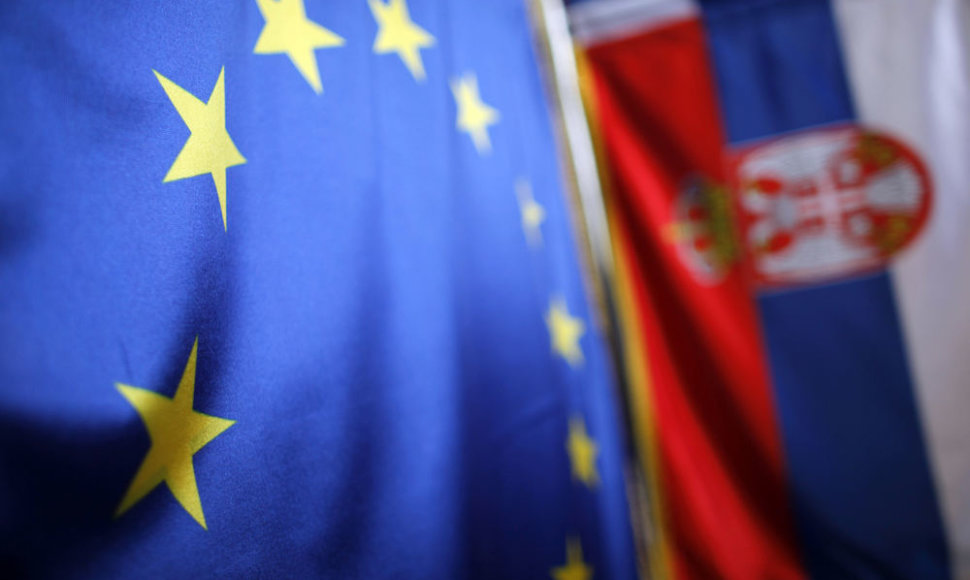Lithuania remains the only EU member state to not have ratified the agreement which is important for Serbia's EU accession talks.
"We endorsed the ratification with a protocol resolution stating, I would say, a concern we clearly formulated, i. e., the ongoing legal dispute between Serbian government institutions and Lithuanian investors. We believe that Lithuanian investors have really strong and substantiated arguments to raise this issue, and the losses incurred are really significant," Petras Auštervičius, a Seimas vice-speaker and committee member, told BNS after the committee sitting.
It's good that disputes between Lithuanian companies and Serbian authorities are being heard by international judicial institutions, the issue, however, is too important for Lithuania to ignore it and not to control it. Therefore, the government was ordered to observe the situation and inform the Seimas, he said.
On the other hand, Auštrevičius underlines, Serbia's EU path is too important for Lithuania to stop it.
"We have to recognize that Serbia's path towards the EU is in our interest as well. If they change and meet all single market requirements, including those in the area of investments, we will benefit from that in the long term," Auštrevičius said.
The ratification issue will be raised during a parliamentary plenary sitting later this week.
The ratification process has been stalled amid difficulties of Lithuanian businessmen in Serbia where assets of Lithuanian companies Arvi, Alita, and Sanitex were nationalized. The Lithuanian companies later turned to international arbitrage courts.
A Stabilization and Association Agreement is an important step for a country seeking EU membership. It covers mainly economic and political goals and strengthens regional cooperation.
It has never been in the EU integration process that a country starts EU accession talks without the Stabilization and Association Agreement in force, Lithuanian diplomats have told BNS earlier.
For such an agreement to come into force, it must be ratified by all EU member states.












